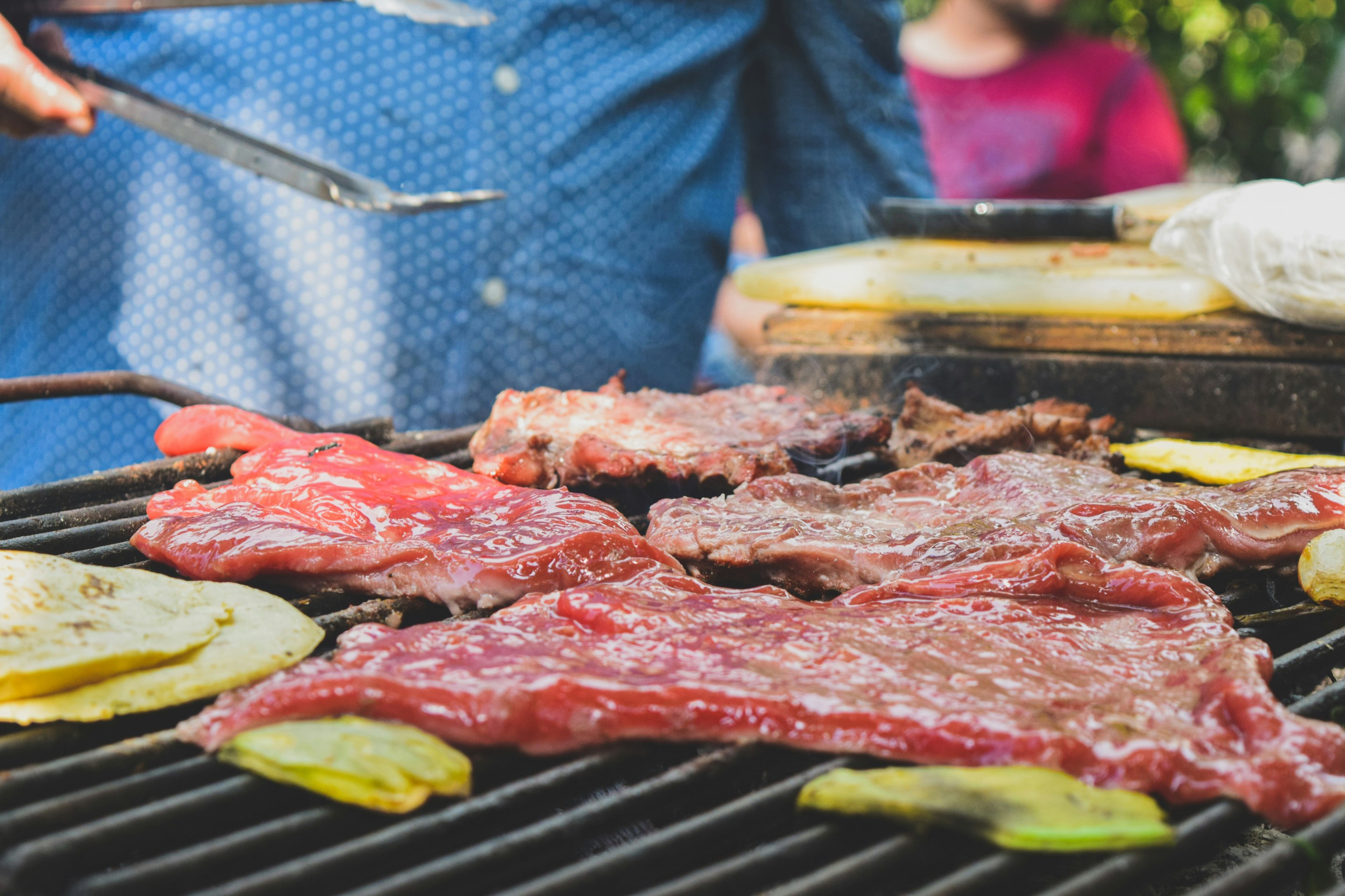Grilling carne asada on the Fourth of July is as American as flipping burgers or roasting hot dogs—and I’ll tell you why. But first, we need to talk about what it even means to be American right now.
Because despite the messiness of the moment—wars abroad, fascism simmering at home, ICE alerts popping up on my Ring app—I’m still proud to be an American. Maybe not in the “giant flag hanging off the back of my truck” way . But in a complicated, honest way. The kind of pride that comes from understanding that America was never perfect to begin with—but has always been full of possibility.
On its best days, this country is a beacon of hope. On its worst days (at least for now), it’s still a place where I’m free to speak my mind, question authority, and gather with my community. That’s not nothing. That’s hard-fought. That’s messy, imperfect, and always evolving.
America is a beautiful contradiction—like me.
My roots go back to Indigenous people who lived on this land before it had a name, and to European ancestors who came here and claimed it. My parents came here chasing the American Dream, carving out a life for our family thanks to the 1986 amnesty bill. Their story—like so many others—reshaped what America is. That’s the promise: not that you assimilate into some fixed identity, but that your story becomes part of the bigger one.
I’ve been thinking about that a lot lately—especially when I fire up the grill.
As a kid, I refused to stand for the Pledge of Allegiance at school. Not because I had some grand political protest in mind—I just didn’t like being told what to do. But looking back, that defiance feels pretty American, too. This country was born from rebellion. The right to dissent is foundational.
Yet, I also loved the Fourth of July. My tío’s block parties in a nicer part of town had lemonade stands, backyard fireworks, roller skates, and enough hot dogs to feed a Little League team. It felt like a scene out of The Sandlot. And even though I didn’t realize it then, that sense of belonging—that messy, joyful mix of cultures and traditions—was America.
And those American staples I loved were from immigrants, too. Lemonade was invented in Egypt. Hot dogs are from Germany. Fireworks are from China.
The red, white, and blue dream has always been more mosaic than melting pot.
Which brings me back to carne asada.
Because nothing says “we’re still here” like a backyard carne asada in Los Angeles on the Fourth of July. While fireworks boom over Dodger Stadium and American flags wave from SUVs on the 5, you’ll smell it: smoke curling over stucco walls, kids playing tag with sparklers, music spilling out of bluetooth speakers, someone yelling “¡ya está la carne!”
Carne asada isn’t just food. It’s ritual. It’s resistance. It’s joy. It’s how communities—especially mine—claims space in a country that doesn’t always make them feel welcome.
The myth of assimilation says that immigrants come here to become American. But the truth—the real magic of this country—is that every wave of newcomers has made America more like them. Italian immigrants gave us pasta and pizza. Irish immigrants gave us folk songs and labor unions. Asian immigrants transformed our palates and our tech sector. And Mexican immigrants brought carne asada: citrus-marinated, fire-grilled, and shared with love.
Yes, hot dogs and hamburgers are American classics. But they were once immigrant foods too—German sausages and minced meat patties that got Americanized into something new.
Carne asada is on that same trajectory. Born from the fusion of Indigenous fire cooking and Spanish cattle ranching, it became central to northern Mexican identity. And in Southern California, it became something else entirely: street tacos at midnight, carne asada fries at the taco shop, backyard grills full of marinated meat on any given Sunday.
It’s a tradition that adapts. Reinvents. Belongs.
Just like us.
And because every family swears by their own recipe, here’s one from one of my nephew Angel. Serve it chopped in tacos, wrapped in burritos, or on a good old fashioned burger bun. Just like there’s no right way to be an American, there's no right way to eat carne asada.
Angel Galindo’s Carne Asada Recipe
Ingredients:
- 2 lbs of thinly sliced flank or skirt steak (carne asada cut)
- 2 large oranges, juiced (about 1 cup fresh orange juice)
- 1 medium white onion, half sliced into thin strips
- 1/2 bunch fresh cilantro, roughly chopped (about 1/2 cup packed)
- 1 tablespoon garlic powder
- 1 tablespoon paprika
- 1 teaspoon Ac’cent seasoning (optional)
- 1 teaspoon freshly ground black pepper
- 1 teaspoon dried oregano
- 1 teaspoon ground cumin (comino)
- 1 tablespoon Lawry’s seasoned salt
Preparation:
- Lay the meat out in a large dish or tray. Generously season both sides with garlic powder, paprika, Accent, black pepper, oregano, cumin, and Lawry’s seasoned salt.
- Scatter the sliced onion and chopped cilantro over the meat.
- Squeeze the juice of both oranges evenly over the meat, onion, and cilantro. Mix everything together well so the meat is thoroughly coated with seasonings and marinade.
- Cover and let marinate in the refrigerator for at least 1 hour, or overnight for best flavor.
- Grill over medium-high heat for about 4-5 minutes per side, or until desired doneness.
- Slice against the grain and serve hot with warm tortillas, salsa, and lime wedges.
Serves: 4 to 6 people.







